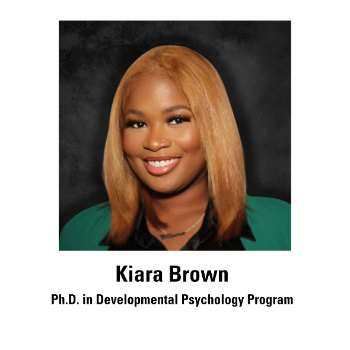Bridging Science and Legislature: Graduate Fellows are Shaping Virginia’s Future
As the world becomes ever more complex, policies sprout like wildflowers in response, science and research-backed initiatives to guide decision-making and improve the quality of our lives. Policymaking is the result of logical reasoning, extensive dialogue, and consideration of peer-reviewed scientific research. To strengthen ties between the scientific community and the state government of Virginia, the Graduate School has partnered with the Virginia Academy of Science, Engineering, and Medicine (VASEM) to offer graduate and postdoctoral students an opportunity to participate in the 12-week Commonwealth of Virginia Engineering & Science (COVES) Fellowship. Students who participate in this program are matched into a legislative office, executive agency, prominent company, or nonprofit organization office based on mutual interest, where they will serve as science advisors. They are then exposed to the legislative process, networking opportunities, and developing integral transferable skills.
 “I really want to be the bridge between what the science is saying and the policies that are needed for communities that are disenfranchised by a lot of systemic issues,” said Kiara Brown, a PhD student in developmental psychology and one of two VCU students selected to participate in the fellowship. Kiara’s placement for the fellowship was at the Virginia Behavioral Health Commission. Considering her interest in solving complex problems by integrating her knowledge of psychology with policymaking, it was a natural fit for Kiara. She added, “I'm really open to gaining as much knowledge and putting as many tools into my tool chest that I can take to go further. I'm really trying to use the COVES opportunity as a stepping stone to learn more about other opportunities that can get me involved in policy and looking at policy from a psychology standpoint.”
“I really want to be the bridge between what the science is saying and the policies that are needed for communities that are disenfranchised by a lot of systemic issues,” said Kiara Brown, a PhD student in developmental psychology and one of two VCU students selected to participate in the fellowship. Kiara’s placement for the fellowship was at the Virginia Behavioral Health Commission. Considering her interest in solving complex problems by integrating her knowledge of psychology with policymaking, it was a natural fit for Kiara. She added, “I'm really open to gaining as much knowledge and putting as many tools into my tool chest that I can take to go further. I'm really trying to use the COVES opportunity as a stepping stone to learn more about other opportunities that can get me involved in policy and looking at policy from a psychology standpoint.”
Pavan Chaitanya, a Master's student in mechanical and nuclear engineering, was also selected for the COVES fellowship and is working with the Virginia Department of Energy this summer. “I will be trying my best to learn the scopes that could be used in support of the small modular reactors that would boost the power generation for Virginia',' said Pavan. He is now familiarizing himself with the day-to-day work of the office and is currently assigned to do memo work that will be sent to the Governor's office. Pavan added, “I plan to gain a deeper understanding of the complexities involved in energy regulation and policymaking.”
While students are enthusiastic about the opportunity, a potential roadblock could be engaging stakeholders from different epistemological backgrounds and ensuring that the scientific process is not overlooked in policymaking. When asked about how they would respond in such a situation, Kiara’s response is to lead with the facts and the research. “By being able to integrate and mesh both of our knowledge and expertise, I will really be able to benefit the outcomes that I'm looking to have on these communities.” Pavan also emphasized the importance of leading with research. “The primary focus should be on the research. Then, from the research and the results that we get, that could be applied in the field,” he said.
and ensuring that the scientific process is not overlooked in policymaking. When asked about how they would respond in such a situation, Kiara’s response is to lead with the facts and the research. “By being able to integrate and mesh both of our knowledge and expertise, I will really be able to benefit the outcomes that I'm looking to have on these communities.” Pavan also emphasized the importance of leading with research. “The primary focus should be on the research. Then, from the research and the results that we get, that could be applied in the field,” he said.
Science and policy will always depend on each other as disciplines to guide our safety and progress. This symbiotic relationship allows us to integrate and utilize our areas of expertise to work together to solve complex problems that cannot be addressed through a single lens or one discipline. By working together, we can foster such collaborative spaces. Pavan said it best: “Without science and technology research, policymaking would be difficult. And without the perfect regulations and guidelines, supporting research advancement and funding would be really tough.”